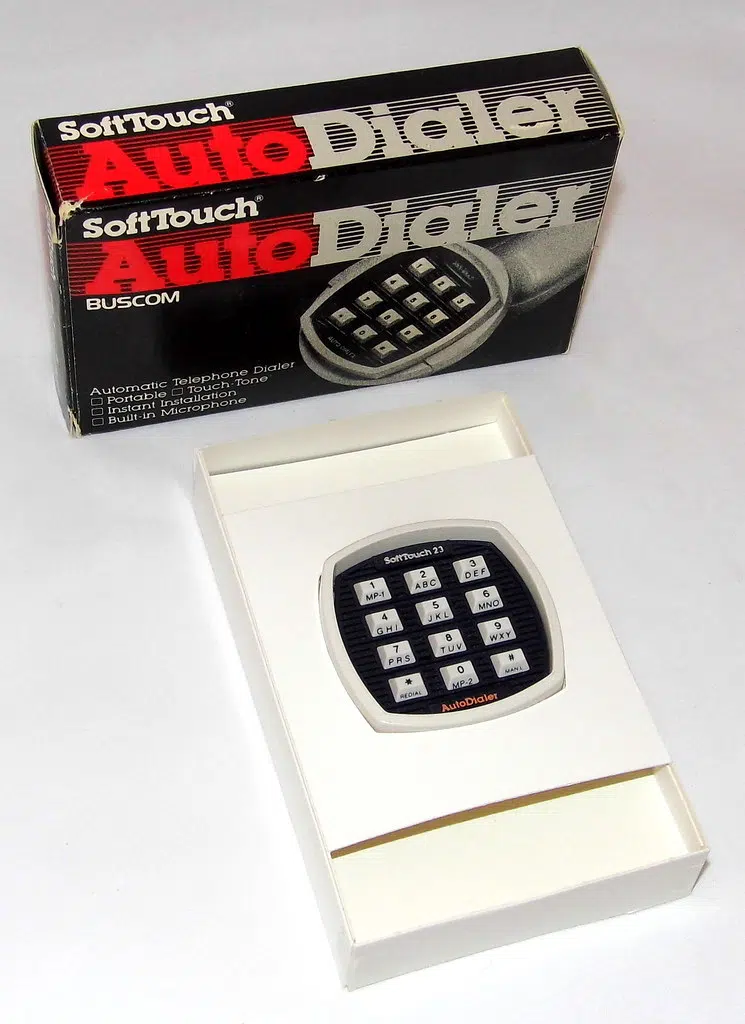Many businesses use automated text messaging and direct cellphone calls with customers as a major part of their sales and marketing. However, these direct marketing strategies can be legally risky.
Automated calls or texts made to cellphones are regulated by the Telephone Consumer Protection Act (“TCPA”) passed in 1991. See 47 U.S.C. § 227 et seq. The TCPA prohibits anyone from calling or texting someone “using any automatic telephone dialing system [“ATDS”] or an artificial or prerecorded voice” without the “prior express consent of the called party.” The statute defines an ATDS as “equipment which has the capacity — (A) to store or produce telephone numbers to be called, using a random or sequential number generator; and (B) to dial such numbers.” If a business or person violates the TCPA, a statutory penalty of $500 can be assessed per call and $1,500 per call can be assessed if the violation was willful or knowing. The TCPA was meant to protect cellphone users from harassing telemarketing calls particularly because, in the nascent days of cellphone service, users were charged for incoming calls as well as outgoing calls. Given that flat-rate billing has become more common, the concern for being charged for incoming telemarketing calls/texts has receded, but the TCPA remains.
Autodialer class action litigation has exploded over the last few years and courts have struggled with the less-than-clear language of the 30-year-old statute. The best legal defenses for businesses using autodialer technology are (1) customer consent and (2) use of a live person on the call from the dialing end. The courts have held that the TCPA does not apply when a human representative is present even if the number called is randomly generated and the dialing is done automatically and/or via machine.
Lack of standing was another major line of defense marshaled by businesses using autodialers. Standing is a legal concept that is based on constitutional legal principles. Courts are not empowered to resolve a case unless there is standing. To have standing, a plaintiff, such as a person claiming a violation of the TCPA, must have some sort of “concrete injury.” Without an injury, a person’s case will be dismissed. A lot of legal effort was directed at convincing the courts that a person receiving unwanted text messages and/or calls was really not injured in any significant manner. That effort has ultimately failed at least where there has been more than one call. See, for example, Cordoba v. DIRECTV, LLC, 942 F.3d 1259, 1270 (11th Cir. 2019) (“[t]he receipt of more than one unwanted telemarketing call is a concrete injury that meets the minimum requirements of Article III standing.”)
The other major battle ground has been over the definition of what constitutes an ATDS. Here is where there has been, potentially, some easing of restrictions. As noted, the TCPA defines an ATDS as a device that can “store or produce telephone numbers to be called, using a random or sequential number generator” and that can “dial such numbers.” The legal question currently being debated and decided by the federal courts is whether a device that only STORES a list of numbers that are automatically dialed can be considered an autodialer under the TCPA. As many have pointed out, if this is the definition of autodialer, then every standard cellphone is an autodialer. For example, most people have on their phones a stored list of numbers for their family, workmates and friends. Further, most people use a form of auto-dialing when they place calls. Very few people manually input the telephone number if the number is already stored.
One federal circuit has taken the legal position that storage is sufficient and that random number generation is not required. See Marks v. Crunch San Diego, LLC, 904 F.3d 1041 (9th Cir. 2018). The court specifically held an ATDS “includes devices with the capacity to dial stored numbers automatically.” This is a restrictive definition that endangers any business that makes automated telemarketing calls from a list of stored numbers.
By contrast, two federal circuits have now arrived at the opposite conclusion — that autodialing from a list of stored numbers does NOT meet the statutory definition of an ATDS. This was the holding of Gadelhak v. AT&T Services, Inc., (7th Circuit, February 19, 2020). The court held that the TCPA applies only to autodialers that store and produce random or sequential numbers. In that case, the device at issue did not store or produce telephone numbers using a random or sequential number generator. Rather, the device exclusively dialed telephone numbers that were stored in a customer database. The court concluded that the device was not an “automatic telephone dialing system” as defined by the TCPA. A similar result was reached in Glasser v. Hilton Grand Vacations Co., 948 F.3d 1301 (11th Circuit, January 27, 2020).
As can be seen, legal issues with respect to autodialers remain unsettled and hotly contested. Likely, autodialer litigation will continue to expand. The Ninth Circuit’s decision is not necessarily wrong, even if it is now the minority position. If the purpose of the TCPA is to protect cellphone users from harassing and unwanted telemarketing calls/texts, then the focus might correctly be placed on the auto-dialing aspect, not the distinction between storage and random generation of numbers. Further, random generation of numbers is almost an obsolete concept since computer storage capacity is now so expansive that it is literally possible to store hundreds of millions of phone numbers in one data set. From the consumer’s standpoint, a call may be annoying and unwanted regardless of whether the call was made from a number that was stored or a number that was randomly generated.
If you have legal questions about consumer privacy, data security, communication technologies and internet law, contact the internet lawyers at Revision Legal at 231-714-0100.




